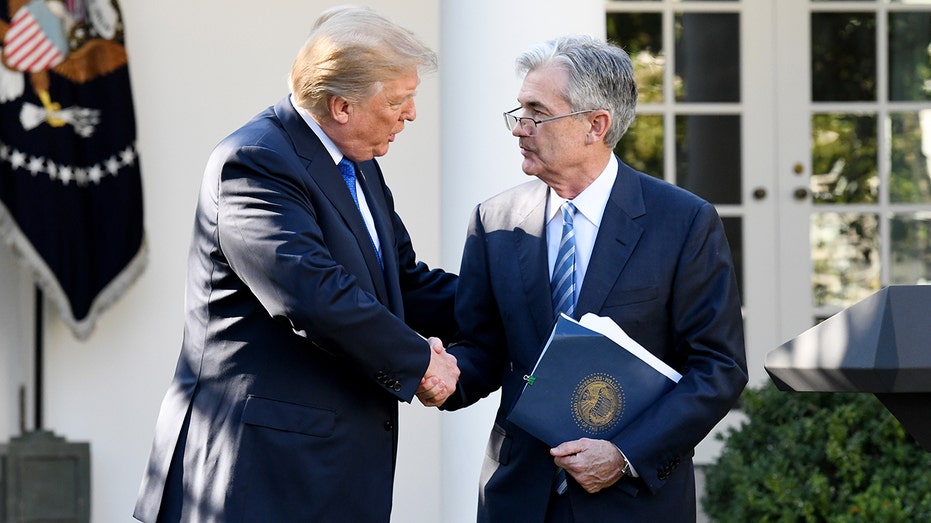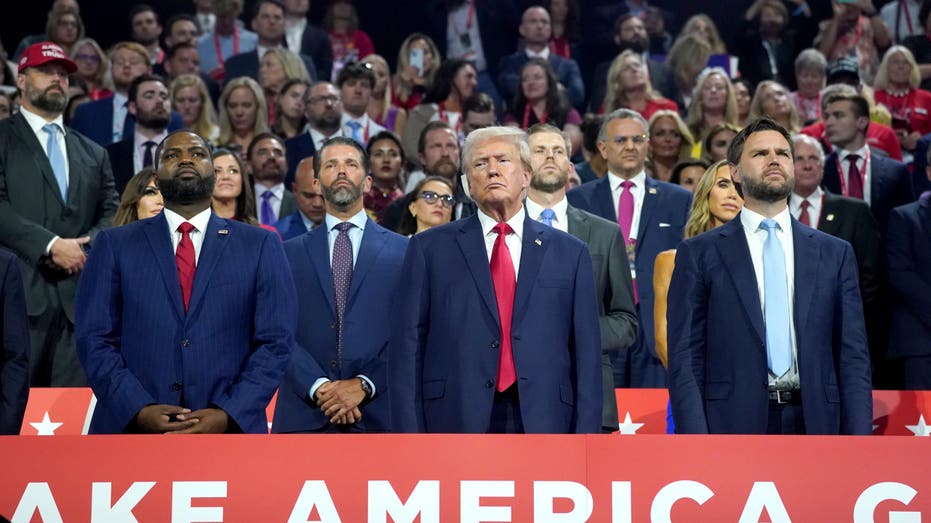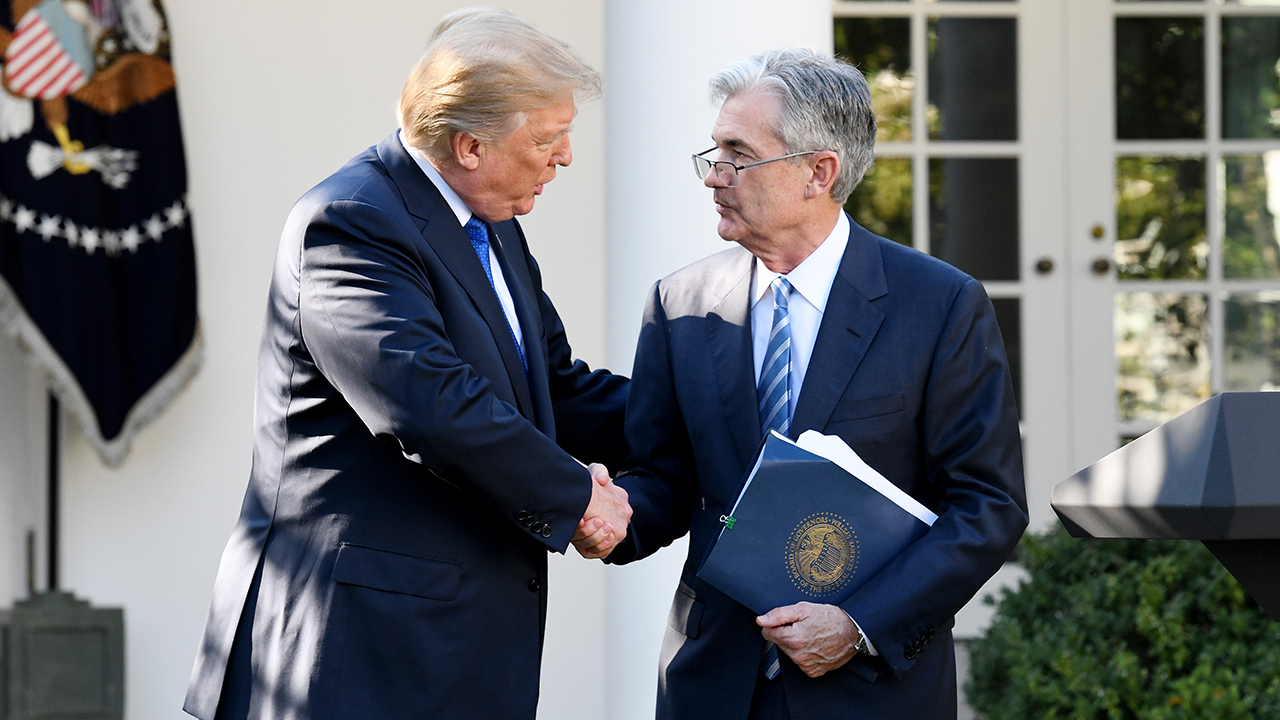Trump says he would allow Fed Chair Powell to finish his term if re-elected
Trump says he would not fire Powell as Fed chair if he is re-elected
Is Powell inching closer to cutting interest rates?
Wall Street Journal chief economics correspondent Nick Timiraos says the balance of risks have been shifting for the Federal Reserve on 'The Claman Countdown.'
Republican presidential candidate Donald Trump said that he would allow Federal Reserve Chair Jerome Powell to finish his term at the helm of the central bank if he wins the November election.
"I would let him serve it out, especially if I thought he was doing the right thing," Trump said, according to a Bloomberg News interview that took place in June.
Powell's term as chair ends in May 2026, while his position on the Fed board continues until 2028.
TRUMP VP PICK JD VANCE BREAKS WITH REPUBLICAN CONVENTION ON SOME TAX ISSUES

President Donald Trump shakes hands with Jerome Powell, governor of the U.S. Federal Reserve and Trump's nominee as chairman of the Federal Reserve, right, during a nomination announcement in the Rose Garden of the White House in Washington, D.C., on (Photographer: Olivier Douliery/Bloomberg via Getty Images / Getty Images)
Trump also warned that the Fed should not cut interest rates before the November election, which could give the economy – and President Biden – a lift. Wall Street widely expects the Fed to cut interest rates twice by the end of the year, with the first reduction coming in September.
"It's something that they know they shouldn't be doing," Trump said.
BIDEN UNVEILS PLAN TO CAP NATIONAL RENT INCREASES AT 5%
Although he was nominated to lead the central bank by Trump in 2017, Powell faced relentless criticism from the former president, who repeatedly threatened to fire the Fed chief and admonished him as a "bonehead" for raising interest rates. In nominating Powell, Trump also broke with precedent in passing over Janet Yellen, the former Fed chair who was nominated by then-President Barack Obama, for a second term.

Former President Donald Trump stands alongside other Republicans at the Republican National Convention at the Fiserv Forum in Milwaukee, Wisconsin, on July 15, 2024.
During an interview with FOX Business' Maria Bartimo in February, Trump said that he would not reappoint Powell to a third term as Fed chief.
"I think he’s political," he said at the time. "I think he’s going to do something to probably help the Democrats, I think, if he lowers interest rates."
GET FOX BUSINESS ON THE GO BY CLICKING HERE
Policymakers raised interest rates sharply in 2022 and 2023 to the highest level in more than two decades in a bid to slow the economy and cool inflation. Officials are now grappling with when they should take their foot off the brake amid signs that inflation is normalizing.
Higher interest rates tend to create higher rates on consumer and business loans, which then slow the economy by forcing employers to cut back on spending. Higher rates helped push the average rate on 30-year mortgages above 8% for the first time in decades. Borrowing costs for everything from home equity lines of credit, auto loans and credit cards have also spiked.





















